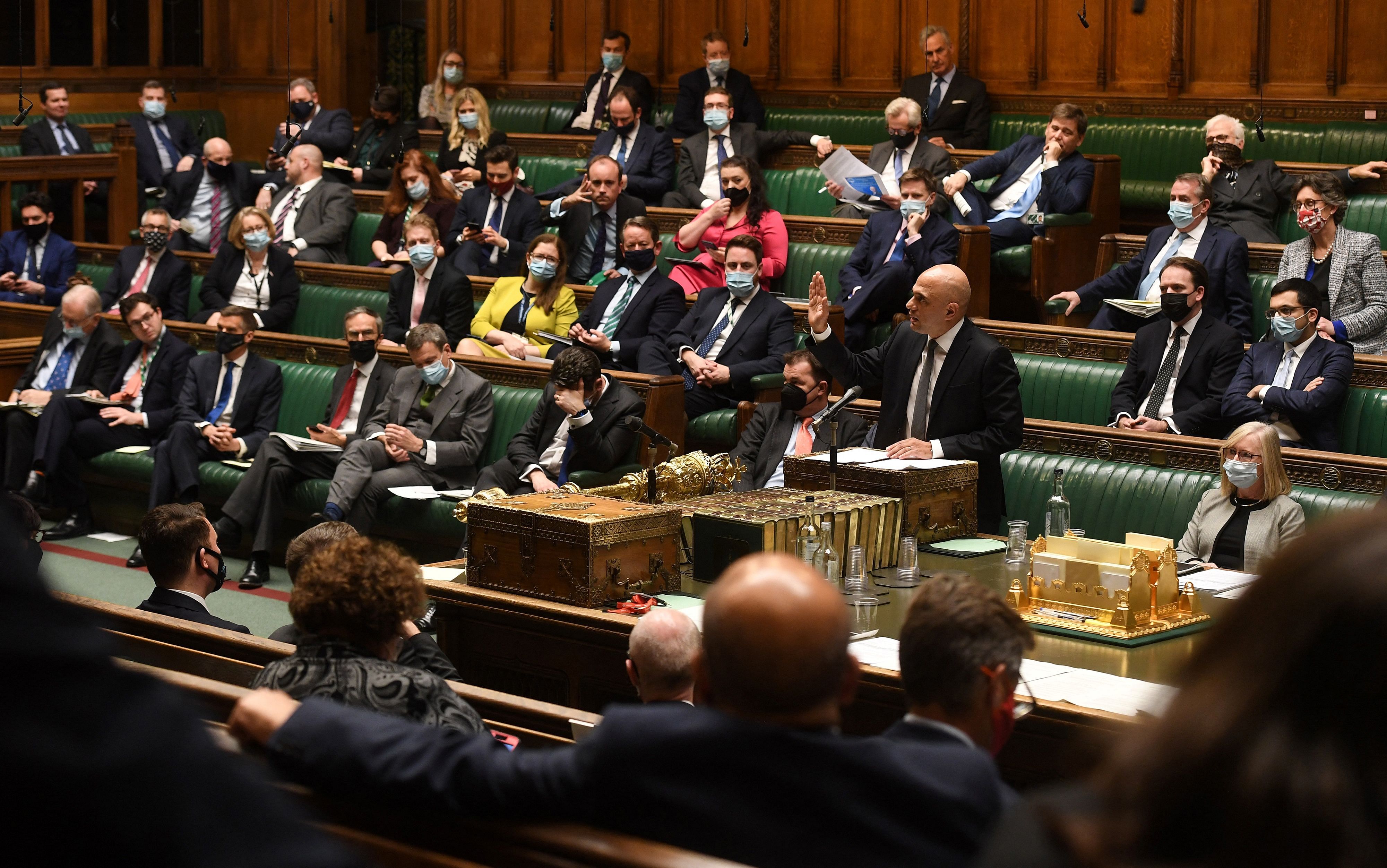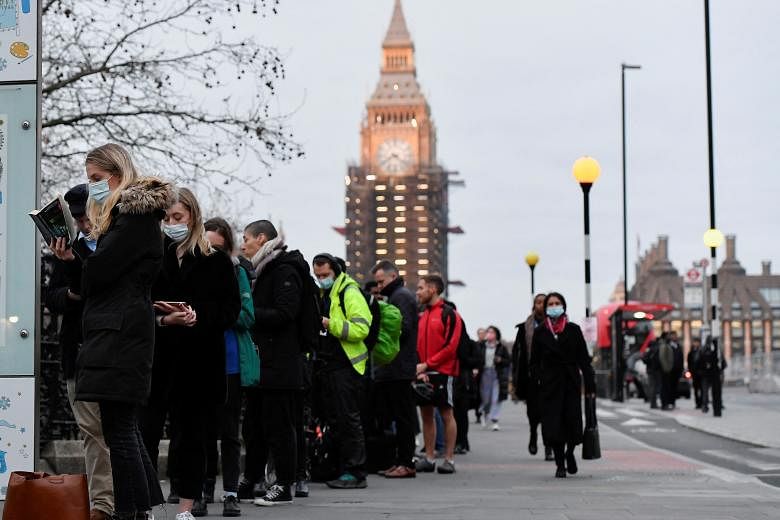LONDON - British Prime Minister Boris Johnson has suffered his biggest parliamentary revolt since he came to power in 2019, after an unprecedented number of his own MPs snubbed his personal plea and voted against new measures to control the spread of the Omicron variant of the coronavirus.
Nevertheless, measures reimposing mandatory mask wearing and introducing vaccine passports for those seeking to attend large-scale public events attracting big crowds were adopted by the British Parliament, since the opposition Labour party sided with Mr Johnson on these matters.
Yet almost 100 MPs — just under a third of the ruling Conservative party’s total number of lawmakers — voted against their own government on Tuesday (Dec 14), dealing a heavy blow to the reputation of the Premier and raising the possibility of an outright challenge to his leadership early in the new year.
Mr Johnson has warned that his country faces a “tidal wave” of Covid-19 infections linked to the new variant of the highly transmissible coronavirus, which he is trying to contain with an unprecedented vaccine booster campaign.
To prevent hospitals from being overwhelmed, Mr Johnson announced new restrictions: daily tests for contact cases, a return to working from home and the compulsory vaccination of health workers, as well as the introduction of vaccination certificates for those seeking to attend major public events.
The British leader knew all along that he would face a tough time getting these through Parliament.
Some government MPs object to the measures as a matter of principle; they claim that they violate the rights of individuals. But others simply dismiss the measures as irrelevant.
Under current plans, vaccination passports are to be issued to anyone who has had two doses of an authorised vaccine, despite new evidence indicating that only those who also had a booster topping up these two doses enjoy effective immunity against the Omicron variant. Currently only 45 per cent of the population are fully vaccinated.
Critics therefore argue that these passports will do nothing to control the pandemic.
But as all MPs during the stormy parliamentary session were only too aware, the real debate was not about the effectiveness of pandemic measures; it was about the tattered reputation of Mr Johnson.
Two years after his historic December 2019 electoral victory, with a promise to pull Britain from the European Union and “unleash a new era of prosperity”, Mr Johnson has seen his popularity plunge, and calls for his resignation are now multiplying after a series of scandals.
For the past two weeks, the media has pilloried the Prime Minister with revelations of a Christmas party at his official residence in Downing Street in December last year, a time when ordinary Britons were banned from any social interactions outside their immediate families.

Mr Johnson added to his own plight by obfuscating his response to these accusations. He first denied that any Christmas party took place, then claimed that the gathering at his residence was not a party and finally – when video evidence of the event surfaced – argued implausibly that he was not aware of what people were doing in his house last Christmas.
Nor are his tribulations over.
Additional photographs subsequently emerged of the Prime Minister participating in a Christmas quiz game with other supporters and, overnight, there were further revelations of festive gatherings in government circles during the time when Britain was under a strict lockdown.
The allegations are deeply damaging for a government that is now asking the public for further pandemic sacrifices. And they come on top of perceptions of a government that is now drifting aimlessly, and of a prime minister who seems constantly distracted and out of touch.
The scale of the parliamentary rebellion — much bigger than expected — raises fresh questions about Mr Johnson’s ability to keep his party on side.
Mr Paul Goodman, editor of ConservativeHome, a highly influential website with the ruling party, now predicts that it is “suddenly more likely than not” that Mr Johnson will not lead his party into the next elections.
And after the parliamentary vote, even people otherwise loyal to him, such as Sir Geoffrey Clifton-Brown, the treasurer of his parliamentary party, admitted that a leadership challenge in the new year was now possible.
“I think that’s got to be on the cards. He’s got to realise that he’s got to change,” the leading MP told the media.
For the moment, there are no contenders for leadership, although Finance Minister Rishi Sunak and Foreign Secretary Liz Truss are assumed to be the front runners, should a vacancy occur.
For Mr Johnson, meanwhile, there is no respite. He faces a crucial by-election in North Shropshire on Thursday (Dec 16), and if he loses that, rumours about a potential coup against him will only grow.


